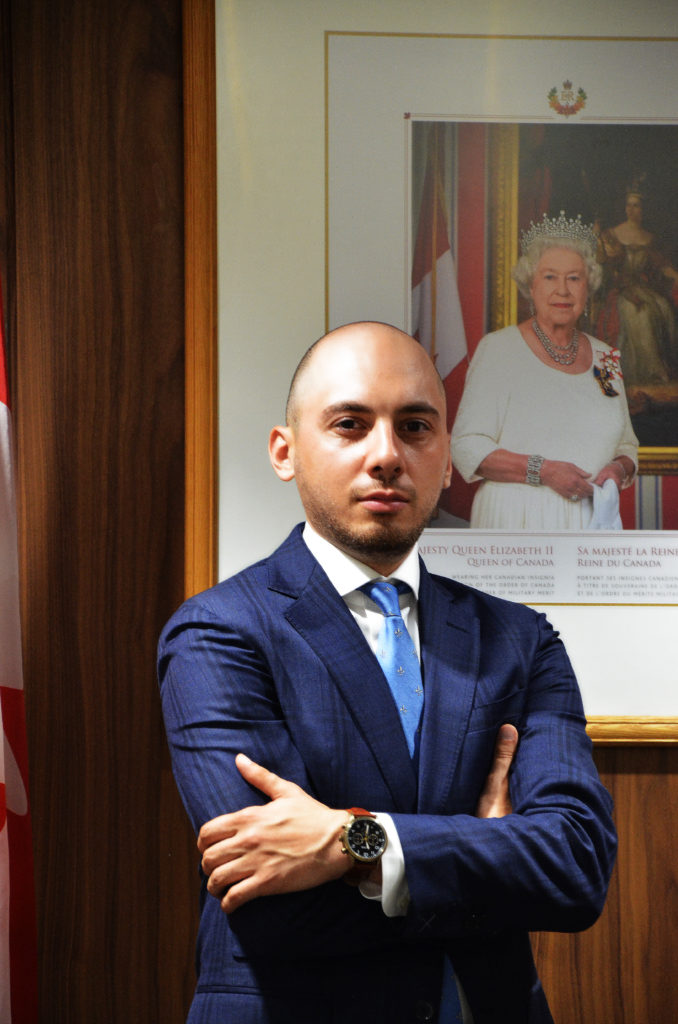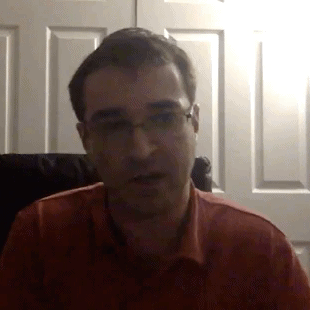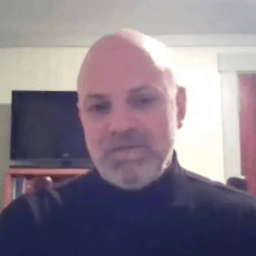Start Your Process Today to appeal a cessation of pR case inside Canada!
Find out how you could maintain your PR status and to extend stay in Canada.
What is Cessation of Permanent Residency Case in Canada?:
İşleminizi Bugün Tamamlayarak Başlatın Online Değerlendirme Formu.

The **Pre-Removal Risk Assessment (PRRA)** is a process in Canada that allows individuals facing removal from Canada to apply for protection if they believe they would face **risk of harm** upon returning to their country of origin. The PRRA is part of Canada's immigration system and is designed to ensure that individuals are not removed to a country where they could face persecution, torture, or cruel and unusual treatment or punishment.
### Key Aspects of the **PRRA**:
1. **Purpose of PRRA**:
The main goal of the PRRA is to assess whether there are **new risks** or **changed circumstances** that could prevent a person from being safely returned to their home country. These risks could include:
- **Persecution**: Threats or harm based on race, religion, nationality, political opinion, or membership in a particular social group.
- **Risk of Torture**: If the person might face torture upon return.
- **Risk of Cruel or Unusual Treatment or Punishment**: If the person would face harsh or inhumane treatment in their home country.
2. **Who Can Apply for PRRA**:
- PRRA can be applied for by individuals who are at risk of removal from Canada, including those who have overstayed their visa, are in **removal proceedings**, or are subject to a **final removal order** (i.e., they have been ordered by the Canadian government to leave the country).
- **Eligible applicants** for a PRRA include:
- Individuals who are not currently protected persons (i.e., they have not been granted refugee status in Canada).
- Individuals who are subject to a **removal order** but have not had a prior PRRA within the last 12 months.
- Individuals who were previously refused refugee protection but have new evidence of a risk upon return.
3. **When PRRA is Available**:
A PRRA request is typically available **before** a person is removed from Canada. However, in certain situations, a PRRA application may be allowed even after a person has been removed if they are permitted to return (e.g., if new information arises or if their return is delayed).
**Important Note**: People who have had a PRRA decision in the past 12 months are generally not eligible to apply again.
4. **Process**:
- **Application**: To apply for a PRRA, the individual must submit an application to **Immigration, Refugees, and Citizenship Canada (IRCC)**. This application must include detailed reasons why the individual believes they would face a risk of harm in their home country.
- **Assessment**: The IRCC or Canada Border Services Agency (CBSA) assesses the application and any new evidence the applicant provides.
- **Decision**: After reviewing the application and any supporting documentation (such as country conditions, personal circumstances, etc.), a decision is made. If the assessment finds that the applicant would face a risk upon return, the removal order may be suspended, and the individual may be allowed to stay in Canada or given the opportunity to apply for asylum.
- **Positive Outcome**: The individual may be granted **refugee protection** or another form of **status** in Canada (e.g., temporary protected status).
- **Negative Outcome**: If the PRRA is denied, the individual may face removal from Canada, but they may still have the right to appeal or seek judicial review in certain cases.
5. **Eligibility Criteria**:
- Applicants must submit the PRRA request **within 15 days** of receiving a notice of removal from Canada, unless they are a **protected person** (someone who has been granted asylum or refugee status).
- Individuals who have received refugee protection in Canada are not eligible to apply for a PRRA since they are already protected under Canadian law.
6. **Risk Assessment**:
The PRRA considers whether conditions in the person's country of origin have changed significantly, either through updated information about human rights abuses or other political developments. Applicants may need to provide additional evidence, such as:
- **Country condition reports** from reputable sources (e.g., United Nations, Amnesty International).
- **Personal testimony** or affidavits regarding the risks they face.
- **Any other evidence** that supports their claim of risk upon return.
7. **Legal Representation**:
While individuals are not required to have a lawyer to apply for PRRA, many choose to be represented by one, especially if they are involved in complex legal situations or have difficulty understanding the process. Lawyers or authorized representatives can assist in gathering the necessary evidence and presenting the case effectively.
8. **Impact of PRRA**:
- **Suspension of Removal**: While a PRRA is being processed, the person's removal from Canada is typically **suspended** until a decision is made.
- If the PRRA is approved, the person may be granted **refugee protection** or could apply for permanent residency under the refugee program.
- If the PRRA is denied, the individual may be removed from Canada, although they can still pursue other legal avenues, such as a **judicial review** or applying for a **temporary resident permit**.
### Timing:
- The PRRA process usually takes **several months**, and applicants may have to wait for a decision on their case. If their PRRA application is denied, they may still have recourse through other legal channels.
### Distinction from Refugee Claims:
While both **PRRA** and **refugee claims** involve protection applications, they are different:
- **Refugee claims**: Made at the time of entry to Canada (or shortly after). They are assessed by the **Immigration and Refugee Board of Canada (IRB)**.
- **PRRA**: An application for protection **before removal** after a removal order has been issued. It is assessed by IRCC and considers new or changed risks.
### Summary:
The **Pre-Removal Risk Assessment (PRRA)** is a critical process in Canada's immigration system that provides individuals at risk of being removed from the country a chance to present new evidence of harm or risks they might face if returned to their country of origin. It ensures that Canada upholds its international obligations to protect those who may face serious threats, such as persecution or torture, by giving them a chance to stay in Canada if the risks to their safety are found to be valid.
Hiring a lawyer for a **Pre-Removal Risk Assessment (PRRA)** in Canada can be an important step to ensure that your application is prepared and presented effectively. A lawyer specializing in immigration law, and particularly in refugee and protection cases, can help you navigate the PRRA process, gather necessary evidence, and improve the chances of a positive outcome.
### Steps to Hire a Lawyer for PRRA in Canada
Here’s a step-by-step guide to help you hire the right lawyer for your PRRA case:
---
### 1. **Understand the Role of a Lawyer in PRRA Cases**
Before hiring a lawyer, it's important to understand what role they will play in the PRRA process:
- **Assessing Your Eligibility**: The lawyer will assess whether you are eligible to apply for a PRRA based on your circumstances (e.g., whether you have received a prior PRRA decision in the last 12 months, whether you are subject to a removal order, etc.).
- **Legal Advice**: They will advise you on whether applying for a PRRA is your best option or if other immigration remedies are available.
- **Preparing Your Application**: A lawyer will help you gather the necessary documents, evidence, and legal arguments to support your PRRA application. This might include:
- Country condition reports.
- Personal testimony about your risk of harm.
- Evidence of any changed circumstances in your home country.
- **Representing You**: They can represent you in legal proceedings, assist with communication with **Immigration, Refugees and Citizenship Canada (IRCC)**, and potentially file an appeal if the PRRA is denied.
---
### 2. **Find an Experienced Immigration Lawyer or Consultant**
The PRRA process is a specialized area within Canadian immigration law, so you need to find a lawyer with experience handling **refugee protection claims** and **pre-removal risk assessments**. Here are some ways to find the right lawyer:
#### a. **Use the Law Society of Your Province**
- Every province and territory in Canada has its own **Law Society**, which is a regulatory body that maintains a directory of licensed lawyers. You can search for a lawyer specializing in immigration law on their website. For example:
- **Law Society of Ontario**: [www.lso.ca](https://www.lso.ca/)
- **Law Society of British Columbia**: [www.lawsociety.bc.ca](https://www.lawsociety.bc.ca/)
- **Law Society of Alberta**: [www.lawsociety.ab.ca](https://www.lawsociety.ab.ca/)
- These directories allow you to filter by specialization (e.g., immigration, refugee law).
#### b. **Canadian Bar Association (CBA)**
- The **Canadian Bar Association (CBA)** has a lawyer referral service. You can find an immigration lawyer with experience in refugee law by visiting their website: [www.cba.org](https://www.cba.org/)
#### c. **Refugee and Immigration Legal Clinics**
- Many cities in Canada have **legal aid clinics** or **non-profit organizations** that provide free or affordable legal services for refugees and immigrants. These clinics may offer help with the PRRA process, though eligibility for free legal services may depend on your financial situation.
- Example clinics:
- **Legal Aid Ontario**: [www.legalaid.on.ca](https://www.legalaid.on.ca/)
- **Immigrant and Refugee Community Organization of Manitoba (IRCOM)**: [www.ircom.ca](https://www.ircom.ca/)
- **Refugee Law Office (RLO)**: [www.cfcj-fcjc.org](https://www.cfcj-fcjc.org/) (specific to Ontario)
#### d. **Personal Referrals**
- Ask friends, family members, or community members who have gone through the PRRA process for recommendations. Personal referrals can help you find trustworthy and experienced legal representation.
#### e. **Online Directories and Platforms**
- Websites like **Canadian Immigration Lawyers Directory** or platforms like **LawyerLocate** (lawyerlocate.ca) allow you to search for immigration lawyers by location and area of expertise. Many lawyers also have detailed profiles online, including information on their specialization, experience, and client reviews.
---
### 3. **Check the Lawyer's Qualifications and Experience**
Once you have a list of potential lawyers, it’s essential to verify their qualifications and experience:
- **Specialization in Immigration and Refugee Law**: Ensure the lawyer has experience handling **refugee protection claims**, including PRRA cases. This is different from general immigration law, so it’s important to verify they are familiar with the nuances of refugee law.
- **Licensed to Practice in Canada**: Verify that the lawyer is a licensed member of a provincial or territorial law society.
- **Client Reviews or References**: Look for online reviews or ask the lawyer for references from previous clients who have worked with them on similar cases.
- **Track Record**: Ask about their experience with PRRA cases specifically. How many PRRA applications have they handled? What is their success rate? Can they provide examples of how they’ve helped clients in similar situations?
---
### 4. **Arrange a Consultation**
Most immigration lawyers offer an initial consultation (sometimes for free, or for a low fee). This meeting is your chance to:
- **Explain Your Case**: Briefly describe your situation and why you’re seeking protection in Canada through the PRRA process.
- **Assess the Lawyer's Approach**: See if the lawyer is knowledgeable, compassionate, and able to explain things clearly.
- **Discuss Fees**: Understand how the lawyer charges for their services—whether it’s a flat fee, hourly rate, or a retainer. Be sure to discuss all potential costs up front.
- **Evaluate Communication**: Ensure that the lawyer is easy to communicate with, responds to your inquiries promptly, and can explain legal concepts in a way you understand.
---
### 5. **Discuss Fees and Payment Structure**
Legal fees for PRRA cases can vary significantly depending on the lawyer's experience, the complexity of your case, and the region where you are seeking services. Typically, lawyers may charge in the following ways:
- **Flat Fee**: A fixed fee for handling the entire PRRA process.
- **Hourly Rate**: An hourly rate for the time spent on your case (this is common for complex or ongoing cases).
- **Payment Plans**: Some lawyers may offer payment plans to help with large legal fees.
Be sure to get a **written agreement** outlining the costs and payment terms, so you know what to expect.
---
### 6. **Sign a Retainer Agreement**
Once you have selected a lawyer, you will typically sign a **retainer agreement**, which is a formal contract outlining the terms of your legal representation. This agreement should include:
- The services the lawyer will provide.
- The fees for their services.
- The lawyer's obligations and your obligations as a client.
- Any additional expenses that may arise (e.g., document translation, filing fees).
Make sure you read the agreement carefully before signing and that you fully understand the terms.
---
### 7. **Work Closely with Your Lawyer**
Once you hire a lawyer, your next step is to work closely with them to prepare and submit your PRRA application. Provide them with any documentation or evidence that supports your case (e.g., country condition reports, medical or personal evidence, etc.), and follow their advice throughout the process. Keep communication open and be responsive to any requests for information.
---
### Summary
Hiring a lawyer for a **PRRA** case in Canada involves:
- Researching experienced immigration lawyers or legal clinics specializing in refugee and protection law.
- Verifying their qualifications and experience with PRRA cases.
- Having a consultation to discuss your case and fees.
- Signing a retainer agreement and working closely with the lawyer to prepare and submit your PRRA application.
By carefully selecting an experienced lawyer, you can ensure that your PRRA application is presented in the best possible light and that your rights are protected throughout the process.
Yes, it is possible to **sponsor** someone after losing **Permanent Residency (PR)** in a **cessation of refugee status** case, but the situation is complex and depends on a variety of factors. Here’s a breakdown of the potential pathways and considerations:
### 1. **Losing Permanent Residency in a Cessation of Refugee Case**
In Canada, permanent residents (PRs) who originally entered the country as refugees can lose their PR status if their refugee status is **ceased**. This can happen if:
- The person’s refugee status is **revoked** due to changes in their country of origin (e.g., if the conditions that led to their refugee claim no longer exist).
- They **voluntarily returned** to their home country.
- They are found to have **misrepresented their situation** or been involved in activities that disqualify them from refugee protection (such as criminal activities, war crimes, etc.).
When refugee status is ceased, it could lead to **loss of PR status**. Losing PR status typically means the person would be subject to **removal from Canada**, and they would lose their rights to live and work in the country.
---
### 2. **Sponsorship Eligibility After Losing PR Status**
In terms of **sponsorship**, here are some key points to consider:
#### a. **Sponsoring a Spouse, Common-Law Partner, or Dependent Children**
Even if you lose your **permanent resident status** (PR) in a cessation of refugee case, you may still have the ability to **sponsor** family members (such as a spouse, common-law partner, or dependent children) to come to Canada. However, your ability to do so will depend on your legal status in Canada and your ability to meet the **eligibility criteria** for sponsorship:
1. **Eligibility to Sponsor**: To sponsor someone, you must typically be:
- A **Canadian citizen** or a **permanent resident**.
- If you lose your PR status due to cessation, you would no longer meet the requirement of being a permanent resident.
- **Canadian citizens** can still sponsor family members, even if they are no longer permanent residents. So, if you lose your PR status but become a Canadian citizen (or have been one), you can continue to sponsor family members.
2. **Restoration of Permanent Resident Status**: If you have lost your PR status due to cessation but are still eligible to restore your status, you may be able to regain your PR and then proceed with sponsorship. However, restoration of PR status is not automatic, and you would need to apply for **status restoration** through **Immigration, Refugees and Citizenship Canada (IRCC)**. This process is separate from sponsoring others.
#### b. **Sponsoring Other Relatives or Extended Family Members**
If you lose your PR status, you may face challenges when trying to sponsor **other relatives** or individuals who are not immediate family (such as parents or siblings). The rules for sponsoring extended family members are generally more restrictive and can vary based on the sponsor’s status in Canada.
- **Eligibility Requirements**: To sponsor parents, grandparents, or other relatives, you need to be a permanent resident or Canadian citizen in good standing. Losing PR status would disqualify you from being able to sponsor extended family members unless you regain your status or become a citizen.
---
### 3. **Other Pathways for Sponsorship**
#### a. **Applying for Citizenship**:
If you lose your permanent residency status due to cessation but later become a **Canadian citizen**, you may regain the ability to sponsor family members. Canadian citizens do not need to maintain permanent residency to sponsor relatives, and sponsorship is typically not tied to their previous immigration status as a PR.
#### b. **Restoring Permanent Resident Status**:
If your refugee status was ceased, and this led to the loss of your PR status, you may apply to **restore your permanent resident status** if you meet the criteria (usually within a certain time period after losing it). Once restored, you would have the full rights of a permanent resident, including the ability to sponsor family members. However, if more than a year has passed since you lost PR status, the restoration option may no longer be available, and you might need to apply for a new immigration pathway (e.g., as a skilled worker, through family sponsorship, etc.).
---
### 4. **Considerations If Your Refugee Status Was Ceased**
If your refugee status is ceased, it’s crucial to understand the specific circumstances that led to the cessation, as this can affect your ability to sponsor others:
- **Re-establishing Your PR Status**: If you are no longer a PR because of a cessation of your refugee status, and you are trying to sponsor family members, it could complicate your situation. You may need to **reapply for permanent residency** through another immigration route (e.g., Express Entry, family sponsorship if you become a Canadian citizen, or a work/study permit).
- **Eligibility to Sponsor Family Members**: If you lose PR status and cannot restore it, sponsoring family members may become challenging. If you're not a Canadian citizen or do not have PR status again, you may not be eligible to sponsor under the usual family class provisions.
---
### 5. **Important Notes and Advice**
- **Legal Assistance**: If you are facing a cessation of refugee status and losing PR status, it's essential to **consult an immigration lawyer** or a licensed immigration consultant. They can help you understand your options for restoring PR status or applying for a different type of immigration status, and advise you on how this might affect your ability to sponsor family members.
- **Consider Other Immigration Pathways**: If you are not eligible to restore your PR status, you may explore other immigration options that allow you to become eligible for sponsorship again in the future, such as applying for Canadian citizenship (if eligible), applying under a work or study permit, or seeking a different type of status.
---
### Conclusion
If your **permanent residency** is lost due to the **cessation of refugee status**, you can still sponsor **family members** if you are eligible to restore your PR status, become a **Canadian citizen**, or meet the necessary requirements through another immigration pathway. However, if you lose PR status and cannot restore it, your ability to sponsor family members may be restricted until you regain permanent residency or citizenship.
It is highly recommended to **consult an immigration lawyer** to assess your specific situation and explore potential pathways for restoring your status or becoming eligible for sponsorship.






